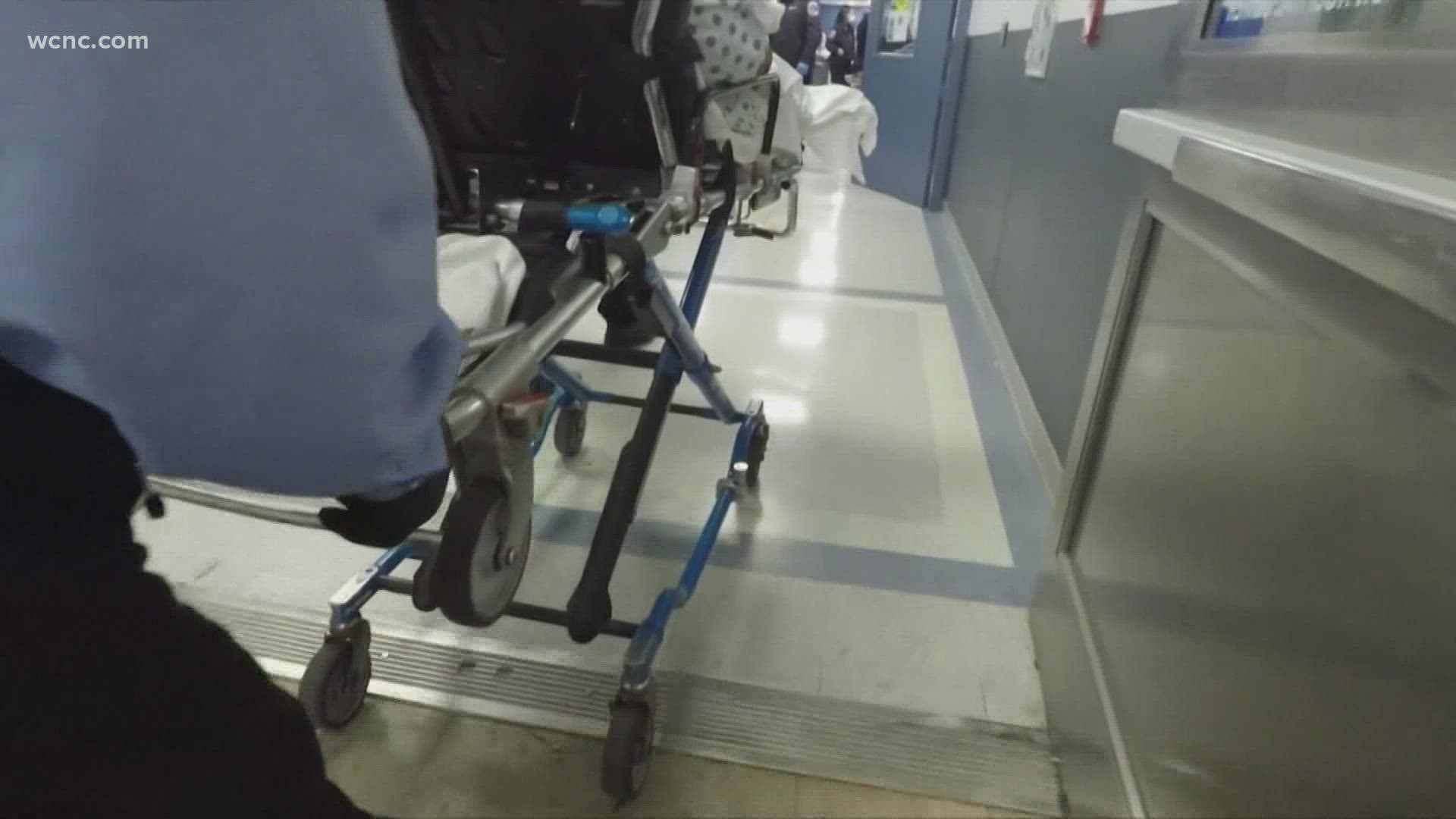CHARLOTTE, N.C. — Gov. Roy Cooper said North Carolina is now entering the next phase of the COVID-19 pandemic, as hospitalizations and daily cases continue to drop statewide.
"We can look forward with the belief that the worst is behind us," Cooper said. "As we look ahead, it's important to take stock of how far we've come."
Cooper praised North Carolina's response during the pandemic, all the way back to the first cases of COVID-19 in early 2020. Cooper said state leaders took action to keep the economy going and get children back in schools.
"We came together, took strong action, protected people's health and worked to prevent our hospitals from being overwhelmed," Cooper said. "We focused not only on saving lives, but livelihoods."
Right now, all school districts in the Charlotte area have optional mask policies and health officials are optimistic about moving toward an endemic response. The most recent map from the CDC shows mostly low COVID-19 community levels across the state, with relaxed mask guidelines in most counties, including Mecklenburg.
"Now we turn the page on the pandemic knowing we have the tools for people and businesses to make the right choices for themselves," Cooper said. "Now we enter the next phase. One of individual responsibility, preparedness and prosperity."
Kody Kinsley, secretary for the state's Department of Health and Human Services, said North Carolina's response will have four core principles:
- Empowering individuals
- Maintaining health system capacity
- Collaboration with local partners
- Prioritizing equity
Commerce Secretary Machelle Baker said the state's economy has been restored to pre-pandemic levels, both in terms of gross domestic product and employment levels.
"We're off to another fast start in 2022, having already announced 23 economic projects this year," Baker said. "Simply put, to continue leading the nation, we cannot rely solely on what made us successful in the past."
The state's COVID-19 dashboard also shows a decrease in hospitalizations, down from more than 3,000 in early February to less than 800 as of this week. The total number of cases and deaths is also decreasing in Mecklenburg County. So far, health officials have reported more than 276,000 cases and about 1,500 deaths since the start of the pandemic in Mecklenburg County.
Moving forward, Kinsley said the state will start updating the NCDHHS COVID-19 Dashboard on a weekly basis on Wednesdays beginning March 23. It will focus on these seven indicators:
- Wastewater surveillance
- COVID-like illness
- Hospital admissions
- Cases
- Booster rates
- Prevalence of variants
- CDC’s COVID-19 community level metric
Kinsley said daily case counts will not be considered as important as other metrics moving forward with at-home tests now more readily available.
"It's not information that we readily have or is reported to us," Kinsley said of at-home COVID-19 tests. "You know, we have looked at the potential of how to get access to that information. Unfortunately, it's not something we can do with a great deal of confidence and quality."
Doctors are now talking about moving to the endemic response phase, which means the virus is here to stay, but we'll just have to learn to live with it, similar to the flu.
With COVID-19 cases continuing to fall, health officials are still encouraging everyone to stay updated with COVID-19 vaccines and get tested if they have any symptoms.
WCNC Charlotte is part of seven major media companies and other local institutions reporting on and engaging the community around the problems and solutions as they relate to the COVID-19 pandemic. It is a project of the Charlotte Journalism Collaborative, which is supported by the Local Media Project, an initiative launched by the Solutions Journalism Network with support from the Knight Foundation to strengthen and reinvigorate local media ecosystems. See all of our reporting at charlottejournalism.org.

